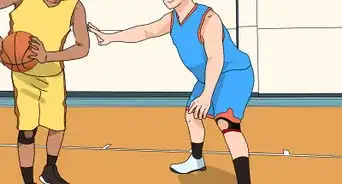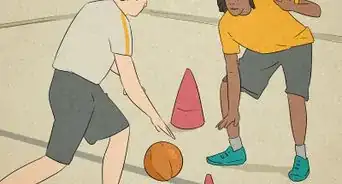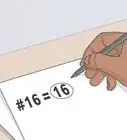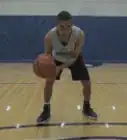This article was co-authored by Ryan Tremblay. Ryan Tremblay is a Basketball Coach and the Owner of National Sports ID and STACK Basketball. With over 30 years of experience, Ryan specializes in basketball coaching, social media marketing, and website design. Ryan created the National Sports ID as a platform to verify the age/grade of youth athletes and STACK Basketball to inspire young athletes to grow into mature individuals and basketball players. Ryan was a First Team All-Decade basketball player in Bergen County and finished in the top 20 all-time leading scorers in the county’s history with 1,730 points. He went on to Caldwell University on a basketball scholarship where he was part of three championship teams. Ryan was a two-time All-Metropolitan, All-State, and All-Conference point guard and the all-time three-point leader in the school’s history, landing him in the Caldwell University Athletic Hall of Fame.
This article has been viewed 182,998 times.
If you're looking for a basketball scholarship, you face tough competition against some of the best young athletes from the United States and the wider world. To secure a scholarship, it's vital that you stand out against everybody else. By practicing basketball as much as possible, working hard academically, and contacting schools and coaches, you can stand out against the competition and increase your chances of getting a basketball scholarship.
Steps
Honing your Basketball Skills
-
1Play basketball as much as you can to improve your game. In the past, you could be the best player on your team in your senior year of high school and that would be enough to secure you a scholarship. Things have changed and colleges now try to identify players much earlier than before. Aim to play on your school's basketball team all throughout high school to increase the chances of getting a scholarship.[1]
- Practice basketball every, and twice a day when you can—that's the only way to really develop the skills you need to stand out enough for a scholarship.[2]
- Make sure you practice the right way. Instead of shooting randomly at the hoop, practice specific drills to improve your skills. For instance, set a goal to make 10 free throws in a row before you move onto another drill.
-
2Join an Amateur Athletic Union team in your area. The Amateur Athletic Union promotes amateur sports in the United States. While playing on your high school team is vital for getting a scholarship, you can increase your chances by joining a team outside of school as well. Not only will you be playing more basketball, you'll also be able to develop your game by playing with different players.[3]
- Playing for more than one team will show college recruiters that you are dedicated, driven, and have a passion for the sport.
- The AAU breaks their teams down into age groups. It has 17-and-under and 15-and-under teams. Tournaments that are sponsored by the AAU are sometimes called high-profile recruiting camps because collegiate basketball programs rely on the tournaments to scout the best players in a central location.
- You can find the Amateur Athletic Union website here: http://aausports.org/.
Advertisement -
3Attend summer camps to grab coaches' attention. Summer camps and showcase events are attended by coaches from colleges across the United States. You can use these events to stand out and show your talent in front of these coaches, all of whom are looking to recruit some talent for their college teams. You can also talk to and develop connections with coaches at these events.[4]
- You can find details for camps in your area at the following website: http://www.basketballcampsusa.com/.
- The NCAA website contains details of the most elite basketball showcase camps: https://web3.ncaa.org/bbcs/publishedEvents.
Meeting Academic and NCAA Requirements
-
1Work hard at school and do well in exams. You have to remember that college is first and foremost a place of education. If you get a scholarship, you will have to attend class, write essays, and take exams. Recruiters will be less likely to take a chance on you if you don't put in the work while you're in high school. Study every day and work with your teachers to improve in your weakest subjects.[5]
- Make school work a priority. Complete all your assignments and hand them in on time. Study for exams so that you are prepared to do your best.
-
2Take your SATs and ACTs as early as you can. The earlier you take these exams, the more opportunities you will have to repeat them. If you don't get the scores you want the first time, take the exams again. The better your scores in these tests, the more you stand out to prospective colleges.[6]
- While you need to be very good at basketball to earn a basketball scholarship, prospective schools love seeing good test scores from applicants.
-
3Find out the NCAA and NAIA student regulations. Each association has different rules and regulations regarding the recruitment process. It's important that you know the rules regarding contact with prospective coaches before you move further in the process.[7]
- For instance, during a "quiet period," a college coach is not allowed to have in-person contact with you or your parents, watch you play, or visit your high school.[8]
- Some of the NCAA requirements for scholarships include completing 16 core courses in high school, earning a 2.0 GPA or better in those 16 courses, meeting the sliding scale requirement of the SATs and ACTs, and graduating from high school.[9]
- Read the NCAA Guide for the College Bound Student-Athlete here: http://www.amateursports365.com/NCAA/2017-18%20Guide%20for%20the%20College-Bound%20Student-Athlete.pdf
Choosing Schools and Preparing Materials
-
1Create a list of colleges you'd like to attend. Create a large, wide-ranging list of colleges you hope to receive a scholarship from. Find out the requirements for each school regarding test scores in high school and playing ability. Don't forget to consider your location preferences when creating the list. Your list should be large at first and get smaller and smaller as time goes on.[10]
- Draft this list as early as you can in high school.
- Speak to the career guidance teacher at your high school to find out which colleges and scholarships are best suited to you.
-
2Visit colleges you are interested in no later than your junior year. To get a basketball scholarship, you can't just sit at home and hope colleges take notice. Visit some of the colleges on your list and talk to the coaches there. Ask about the quality of the team and the competition you'll be facing in trying to secure a scholarship.[11]
- Make sure the coaches at the colleges know you're interested in getting a scholarship. Don't be afraid to tell them some of the achievements you've had in basketball so far in life.
-
3Create a personal resumé for colleges and coaches. Make your resumé as detailed and professional looking as you can. Structure your resumé by listing your name and contact information at the top, as well as your date of birth and where you live. Write a brief "About Me" section of 4-5 sentences detailing the kind of person you are. Next include your academic information, your GPA, and your test scores. Place a section dedicated to basketball after that and include your statistics and playing history.[12]
- You can calculate your GPA here: https://www.athleticscholarships.net/gpa-calculator.htm.
- Use words like "driven," "focused," and "hard worker" in your "About Me" section to stand out to coaches and schools.
- In the basketball section, mention both individual and team achievements. While you are seeking a scholarship for yourself, talking about team achievements shows that you're a team player.
- Placing your basketball section last shows the schools that look at your resumé that you place academics above basketball in your list of priorities.
-
4Make a video of your basketball highlights to send to coaches. Get a friend to record you playing a few different games and edit the footage together to make a highlight reel of your best moments. Keep the video under 3 minutes.[13]
- No matter the position you usually play, include clips of all parts of your game, such as defending, passing, moving, and scoring.
Getting in Touch with Coaches and Scouts
-
1Email the coaches at each school you're interested in. You can contact the school to find each coach's contact information or see if you can find it on the colleges website. Send one coach at each school a personalized email including your reasons for wanting to attend that school, your resumé, and your highlights video.[14]
- You could write:
"Dear Mr./Ms. [coach's name],
I'm reaching out to you because I am looking to secure a basketball scholarship at [college name] for next year. I am attracted to [college name] not just because of the talented and successful basketball team, but also because of its rich history as an institute of education. I traveled to [the college and town] a few months ago and I fell in love with the place immediately. I'm attaching my resumé and a short video showing my basketball skills. Thank you for your time, and I hope to hear back from you soon.
Kindest regards,
[Your full name]."
- You could write:
-
2Call coaches that don't respond after 3 weeks. If coaches haven't replied to your email after 3 weeks or so, call the college and ask if it would be possible to speak to the basketball coach. You might feel awkward reaching out like this but it could be the case that the coach didn't see your email. The coach might be happy to receive a phone call alerting them to your interest.[15]
- Don't ask the coach why they didn't respond to your email when talking over the phone. Mention that you sent an email and that you're calling to express your interest in the basketball program at that college.
- When talking to the coach, say "Hi, I sent you an email a couple of weeks ago about getting a basketball scholarship and I was wondering if you'd had a chance to look at it."
-
3Reply to the coaches that responded to your email. It's highly likely that some coaches, if not most of them, will reply to you. If the coaches show an interest in you, do your best to develop a good relationship with each coach. Do some research on each coach and each team so you can ask informed questions.[16]
- When the coach replies, be polite regardless of what their answer is. Be grateful that they took the time to read your email. Say "I would like to express my deepest gratitude that you took the time to read my email and watch my highlights video."
- It's important that you never ignore an email or phone call from a coach. You might get replies from your preferred colleges and one at the bottom of your list. Don't ignore the college at the bottom of your list. They might be your last option at the end of the process.
-
4Ask your coach to contact colleges if you've been unsuccessful by yourself. Your coach can help college coaches learn about you as a basketball player and as a person. Ask if your coach can give the college coaches a game schedule, so the college coach can come to see you play.[17]
- Your coach can give you vital information and tips on how to stand out in games when a college coach comes to watch you play.
Expert Q&A
-
QuestionHow can I stand out when I'm competing for a basketball scholarship?
 Ryan TremblayRyan Tremblay is a Basketball Coach and the Owner of National Sports ID and STACK Basketball. With over 30 years of experience, Ryan specializes in basketball coaching, social media marketing, and website design. Ryan created the National Sports ID as a platform to verify the age/grade of youth athletes and STACK Basketball to inspire young athletes to grow into mature individuals and basketball players. Ryan was a First Team All-Decade basketball player in Bergen County and finished in the top 20 all-time leading scorers in the county’s history with 1,730 points. He went on to Caldwell University on a basketball scholarship where he was part of three championship teams. Ryan was a two-time All-Metropolitan, All-State, and All-Conference point guard and the all-time three-point leader in the school’s history, landing him in the Caldwell University Athletic Hall of Fame.
Ryan TremblayRyan Tremblay is a Basketball Coach and the Owner of National Sports ID and STACK Basketball. With over 30 years of experience, Ryan specializes in basketball coaching, social media marketing, and website design. Ryan created the National Sports ID as a platform to verify the age/grade of youth athletes and STACK Basketball to inspire young athletes to grow into mature individuals and basketball players. Ryan was a First Team All-Decade basketball player in Bergen County and finished in the top 20 all-time leading scorers in the county’s history with 1,730 points. He went on to Caldwell University on a basketball scholarship where he was part of three championship teams. Ryan was a two-time All-Metropolitan, All-State, and All-Conference point guard and the all-time three-point leader in the school’s history, landing him in the Caldwell University Athletic Hall of Fame.
Basketball Coach You have to practice 8 days a week—that means you might have to play twice some days. Just playing a couple of times a week isn't going to cut it, especially if you want a scholarship to a Division 1 school.
You have to practice 8 days a week—that means you might have to play twice some days. Just playing a couple of times a week isn't going to cut it, especially if you want a scholarship to a Division 1 school. -
QuestionHow big I should I be to get a scholarship senior year?
 Community AnswerYour size is less important than your abilities. No matter your size, do your best and work hard to improve and you may get a scholarship.
Community AnswerYour size is less important than your abilities. No matter your size, do your best and work hard to improve and you may get a scholarship. -
QuestionIs it still possible for me to get a scholarship if my grades were bad one year, but have been really good the next?
 Community AnswerSports scholarships are generally based on your athletic ability, not your grades. Your grades just influence what colleges you can get accepted to. The better your grades, the better your chances of getting into a good college. The grades in your last two years of high school are most important. However, if you're an exceptional athlete and a college really wants you on their team, they may overlook some bad grades.
Community AnswerSports scholarships are generally based on your athletic ability, not your grades. Your grades just influence what colleges you can get accepted to. The better your grades, the better your chances of getting into a good college. The grades in your last two years of high school are most important. However, if you're an exceptional athlete and a college really wants you on their team, they may overlook some bad grades.
References
- ↑ https://www.breakthroughbasketball.com/blog/index.php/basketball-tips-how-to-get-a-basketball-scholarship/
- ↑ Ryan Tremblay. Basketball Coach. Expert Interview. 9 March 2021.
- ↑ https://www.breakthroughbasketball.com/blog/index.php/basketball-tips-how-to-get-a-basketball-scholarship/
- ↑ http://www.basketballdrillsxl.com/how-to-get-a-basketball-scholarship/
- ↑ https://www.breakthroughbasketball.com/blog/index.php/basketball-tips-how-to-get-a-basketball-scholarship/
- ↑ https://www.breakthroughbasketball.com/blog/index.php/basketball-tips-how-to-get-a-basketball-scholarship/
- ↑ https://www.athleticscholarships.net/how-to-get-recruited-scholarship.htm
- ↑ http://www.amateursports365.com/NCAA/2017-18%20Guide%20for%20the%20College-Bound%20Student-Athlete.pdf
- ↑ http://www.amateursports365.com/NCAA/2017-18%20Guide%20for%20the%20College-Bound%20Student-Athlete.pdf
- ↑ https://www.athleticscholarships.net/how-to-get-recruited-scholarship.htm
- ↑ https://www.athleticscholarships.net/how-to-get-recruited-scholarship.htm
- ↑ https://www.athleticscholarships.net/how-to-get-recruited-scholarship.htm
- ↑ https://www.athleticscholarships.net/how-to-get-recruited-scholarship.htm
- ↑ https://www.athleticscholarships.net/how-to-get-recruited-scholarship.htm
- ↑ https://www.athleticscholarships.net/how-to-get-recruited-scholarship.htm
- ↑ https://www.athleticscholarships.net/how-to-get-recruited-scholarship.htm
- ↑ https://www.athleticscholarships.net/how-to-get-recruited-scholarship.htm












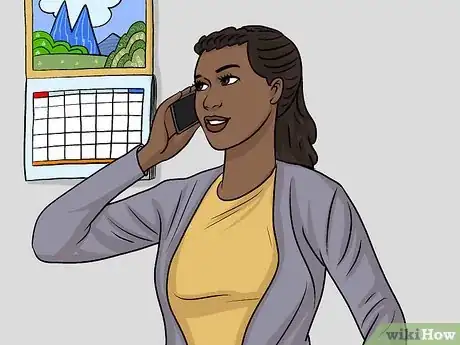

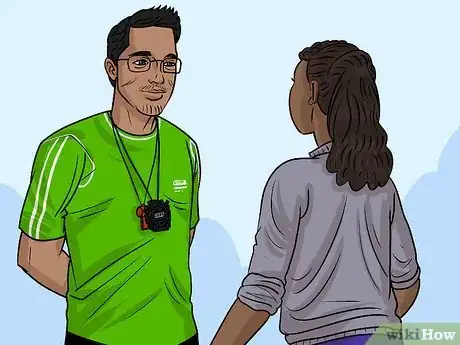
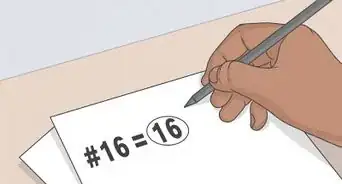
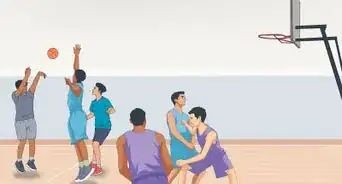
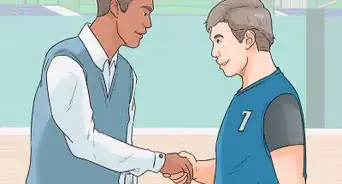
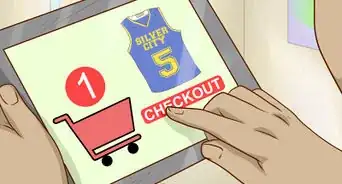
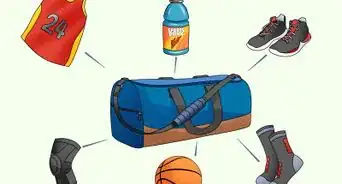
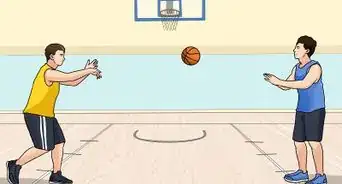
-Step-12.webp)
